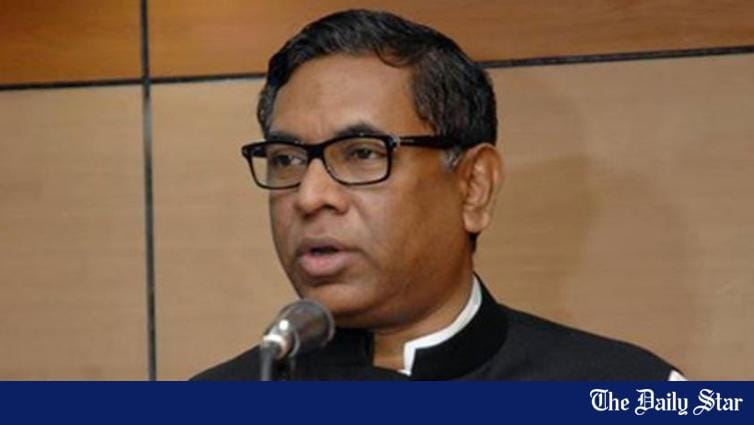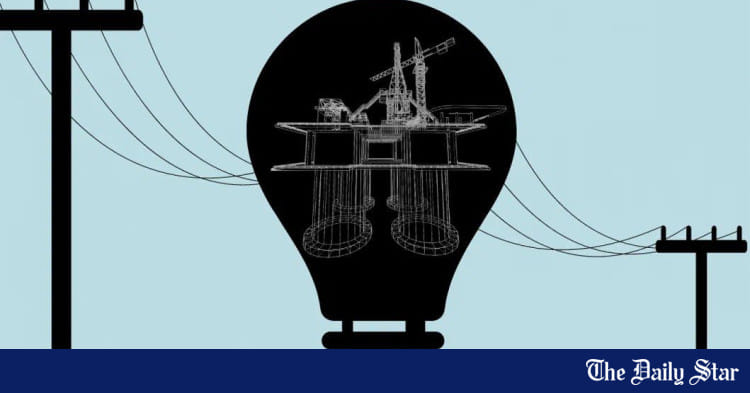Saif
Senior Member
- Joined
- Jan 24, 2024
- Messages
- 16,880
- Likes
- 8,153
- Nation

- Residence

- Axis Group


865,000 illegal gas connections snapped in last 2 yrs: Nasrul
State Minister for Power, Energy and Mineral Resources Nasrul Hamid today said in the last two years, a total of 865,000 illegal gas connections have been snapped
865,000 illegal gas connections snapped in last 2 yrs: Nasrul

State Minister for Power and Energy Nasrul Hamid. File photo
State Minister for Power, Energy and Mineral Resources Nasrul Hamid today said in the last two years, a total of 865,000 illegal gas connections have been snapped.
Of these, 336 were industrial connections, 475 commercial connections, 97 captive power plants, and 13 CNG stations.
"A total of 989km of illegal pipelines have been removed and Tk604 crore has been fined from the illegal consumers", he while visiting the headquarters of the Titas Gas Transmission and Distribution Company Limited in the city today.
System loss in gas distribution segment has been brought down to 7.5 percent now from 22 percent two years ago.
"Now, our target is to bring the system loss to a zero-level in the next two years, " he said, giving a description of the recent moves of the Titas Gas Company.
Titas has been the largest entity in the gas distribution segment having about 2.8 million retail consumers, out of a total 4.8 million of the country.
Briefing reporters, Nasrul said the government has been intolerant in taking action against illegal connections.
He, however, admitted that some influential quarters including local lawmakers, public representatives of different levels have been the main impediments.
"But mind it, the minister of the energy and power ministry is the prime minister herself and she has strong directives to remain uncompromising in this regard, " he said.
Petrobangla Chairman Zanendra Nath Sarker and Titas Managing Director Engr Md Haronur Rashid Mullah were present on the occasion.
Nasrul sadi Titras Gas Company has initiated a move to implement a Tk 12,000 crore project in the areas under Dhaka and Narayanganj cities to replace the old pipelines to stop gas leakages.
Apart from this, Titas Gas has been negotiating with different donor agencies including Asian Development Bank, World Bank, and JBIC of Japan to install pre-paid gas meters to reduce system loss in gas consumption.
Petrobangla Chairman Zanendra Nath said all the distribution and transmission companies have installed meters to ensure accountability in gas trading among them.
State Minister for Power and Energy Nasrul Hamid. File photo
State Minister for Power, Energy and Mineral Resources Nasrul Hamid today said in the last two years, a total of 865,000 illegal gas connections have been snapped.
Of these, 336 were industrial connections, 475 commercial connections, 97 captive power plants, and 13 CNG stations.
"A total of 989km of illegal pipelines have been removed and Tk604 crore has been fined from the illegal consumers", he while visiting the headquarters of the Titas Gas Transmission and Distribution Company Limited in the city today.
System loss in gas distribution segment has been brought down to 7.5 percent now from 22 percent two years ago.
"Now, our target is to bring the system loss to a zero-level in the next two years, " he said, giving a description of the recent moves of the Titas Gas Company.
Titas has been the largest entity in the gas distribution segment having about 2.8 million retail consumers, out of a total 4.8 million of the country.
Briefing reporters, Nasrul said the government has been intolerant in taking action against illegal connections.
He, however, admitted that some influential quarters including local lawmakers, public representatives of different levels have been the main impediments.
"But mind it, the minister of the energy and power ministry is the prime minister herself and she has strong directives to remain uncompromising in this regard, " he said.
Petrobangla Chairman Zanendra Nath Sarker and Titas Managing Director Engr Md Haronur Rashid Mullah were present on the occasion.
Nasrul sadi Titras Gas Company has initiated a move to implement a Tk 12,000 crore project in the areas under Dhaka and Narayanganj cities to replace the old pipelines to stop gas leakages.
Apart from this, Titas Gas has been negotiating with different donor agencies including Asian Development Bank, World Bank, and JBIC of Japan to install pre-paid gas meters to reduce system loss in gas consumption.
Petrobangla Chairman Zanendra Nath said all the distribution and transmission companies have installed meters to ensure accountability in gas trading among them.




